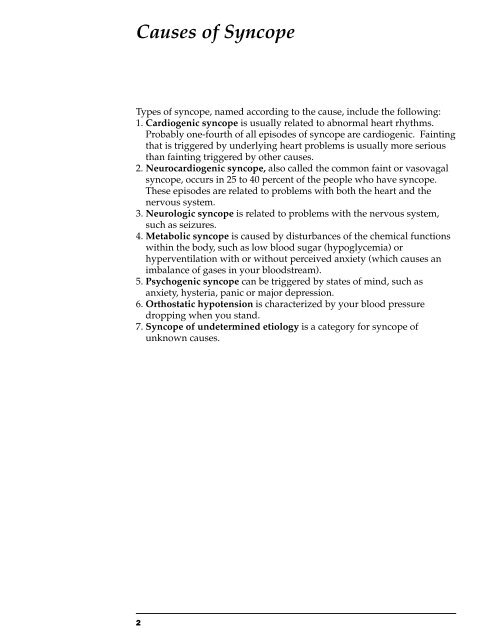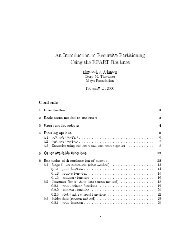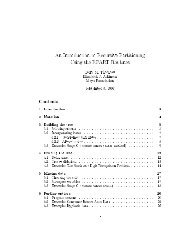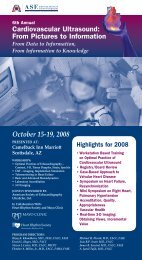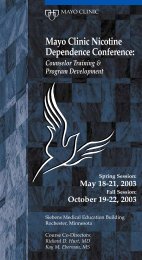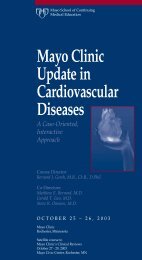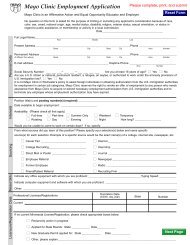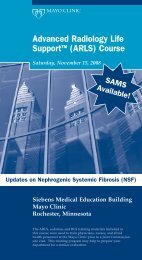Syncope - MC2945 - Mayo Clinic
Syncope - MC2945 - Mayo Clinic
Syncope - MC2945 - Mayo Clinic
You also want an ePaper? Increase the reach of your titles
YUMPU automatically turns print PDFs into web optimized ePapers that Google loves.
Causes of <strong>Syncope</strong><br />
Types of syncope, named according to the cause, include the following:<br />
1. Cardiogenic syncope is usually related to abnormal heart rhythms.<br />
Probably one-fourth of all episodes of syncope are cardiogenic. Fainting<br />
that is triggered by underlying heart problems is usually more serious<br />
than fainting triggered by other causes.<br />
2. Neurocardiogenic syncope, also called the common faint or vasovagal<br />
syncope, occurs in 25 to 40 percent of the people who have syncope.<br />
These episodes are related to problems with both the heart and the<br />
nervous system.<br />
3. Neurologic syncope is related to problems with the nervous system,<br />
such as seizures.<br />
4. Metabolic syncope is caused by disturbances of the chemical functions<br />
within the body, such as low blood sugar (hypoglycemia) or<br />
hyperventilation with or without perceived anxiety (which causes an<br />
imbalance of gases in your bloodstream).<br />
5. Psychogenic syncope can be triggered by states of mind, such as<br />
anxiety, hysteria, panic or major depression.<br />
6. Orthostatic hypotension is characterized by your blood pressure<br />
dropping when you stand.<br />
7. <strong>Syncope</strong> of undetermined etiology is a category for syncope of<br />
unknown causes.<br />
2


